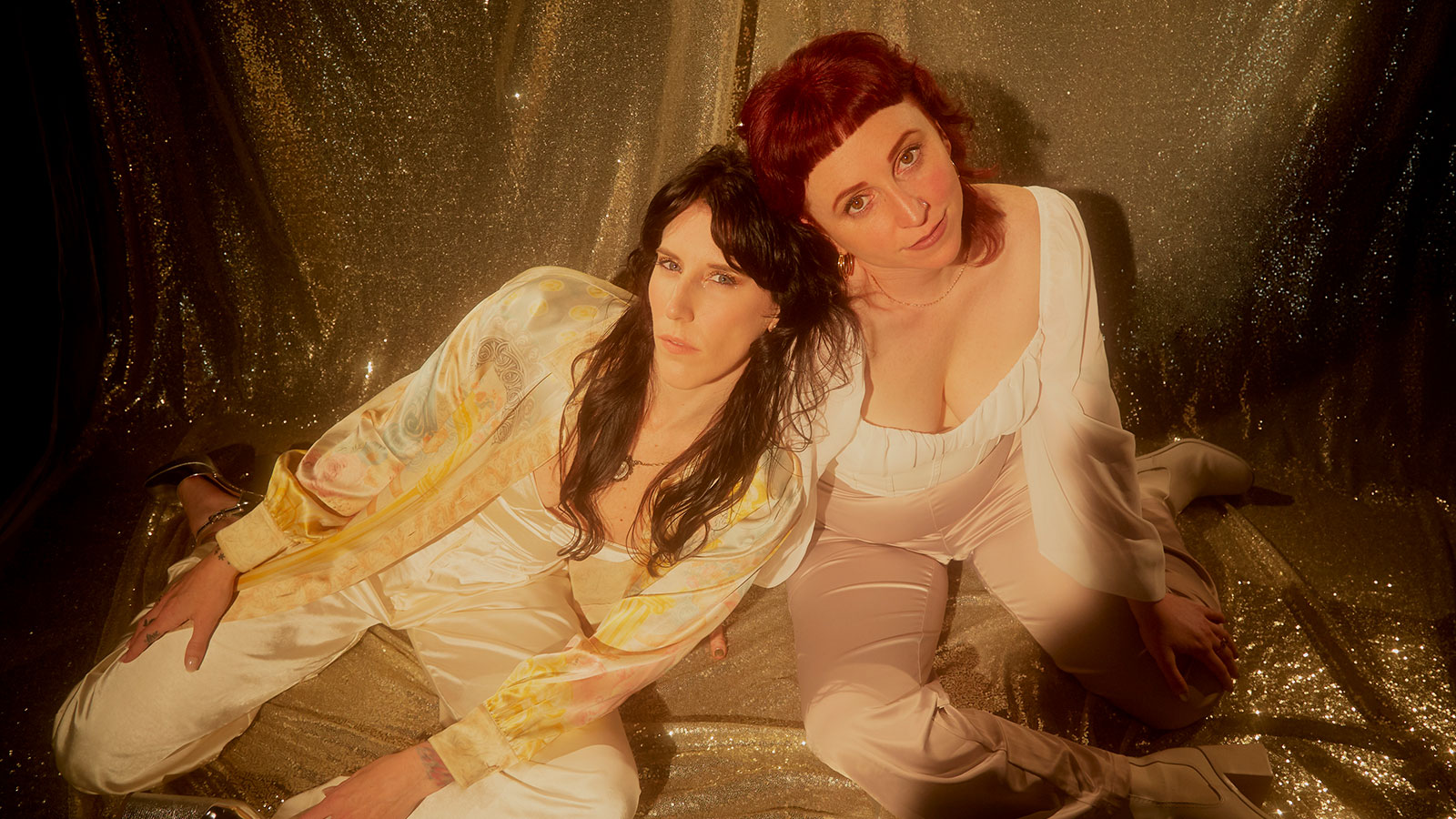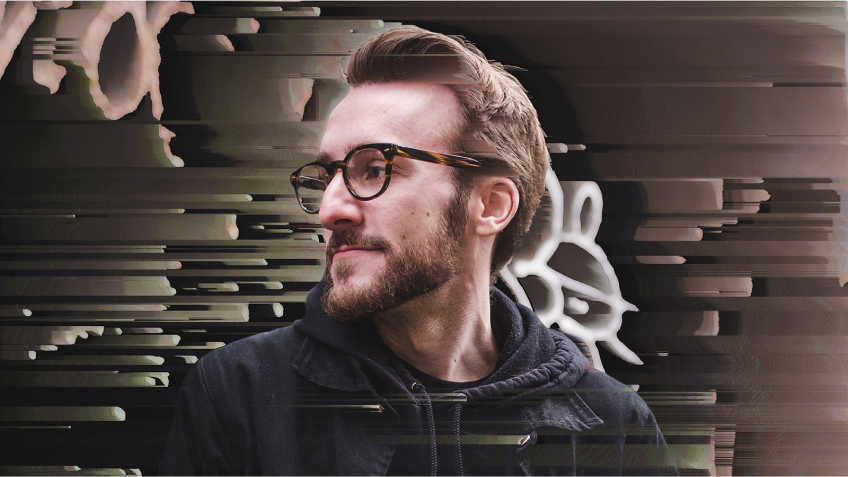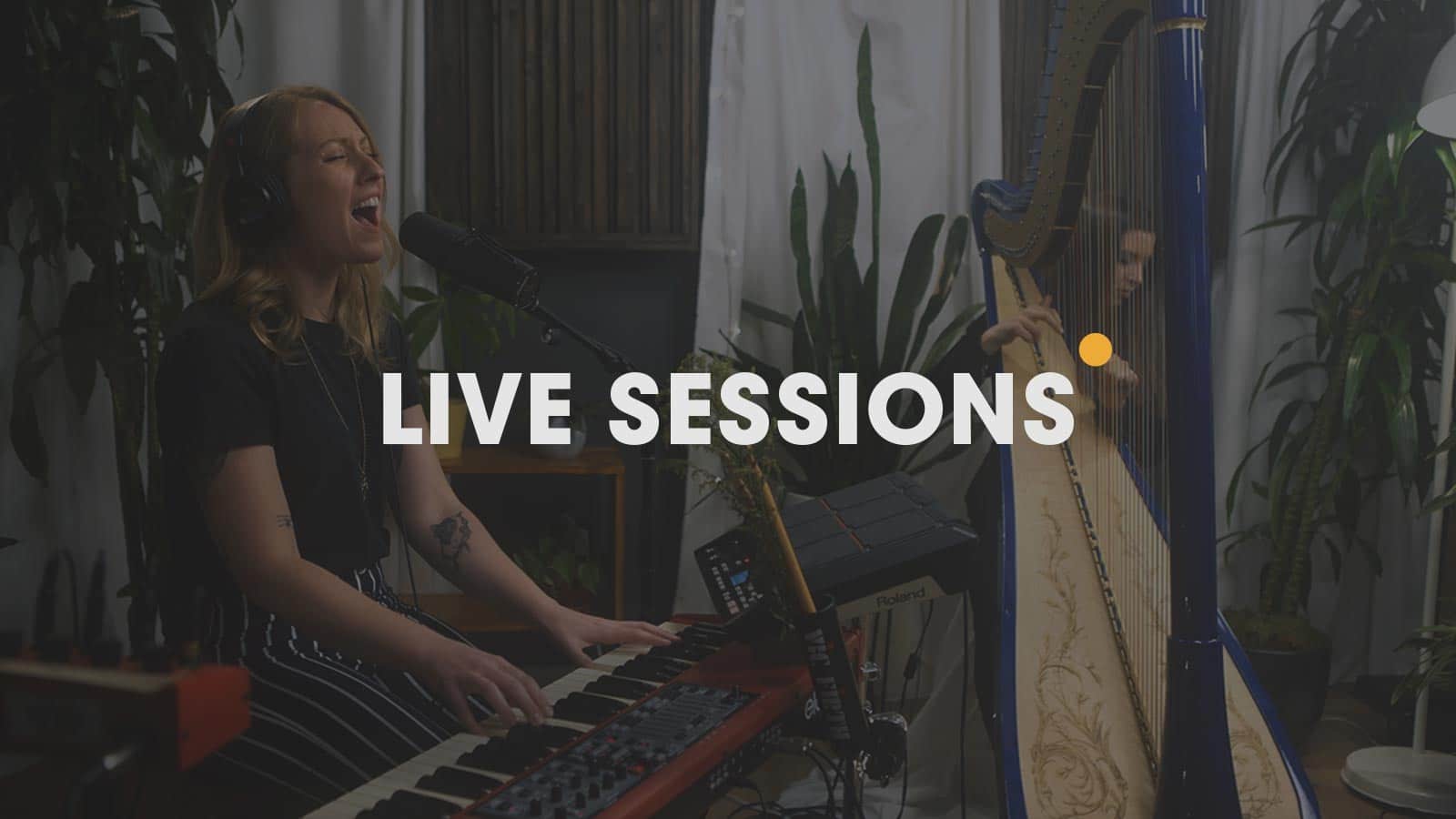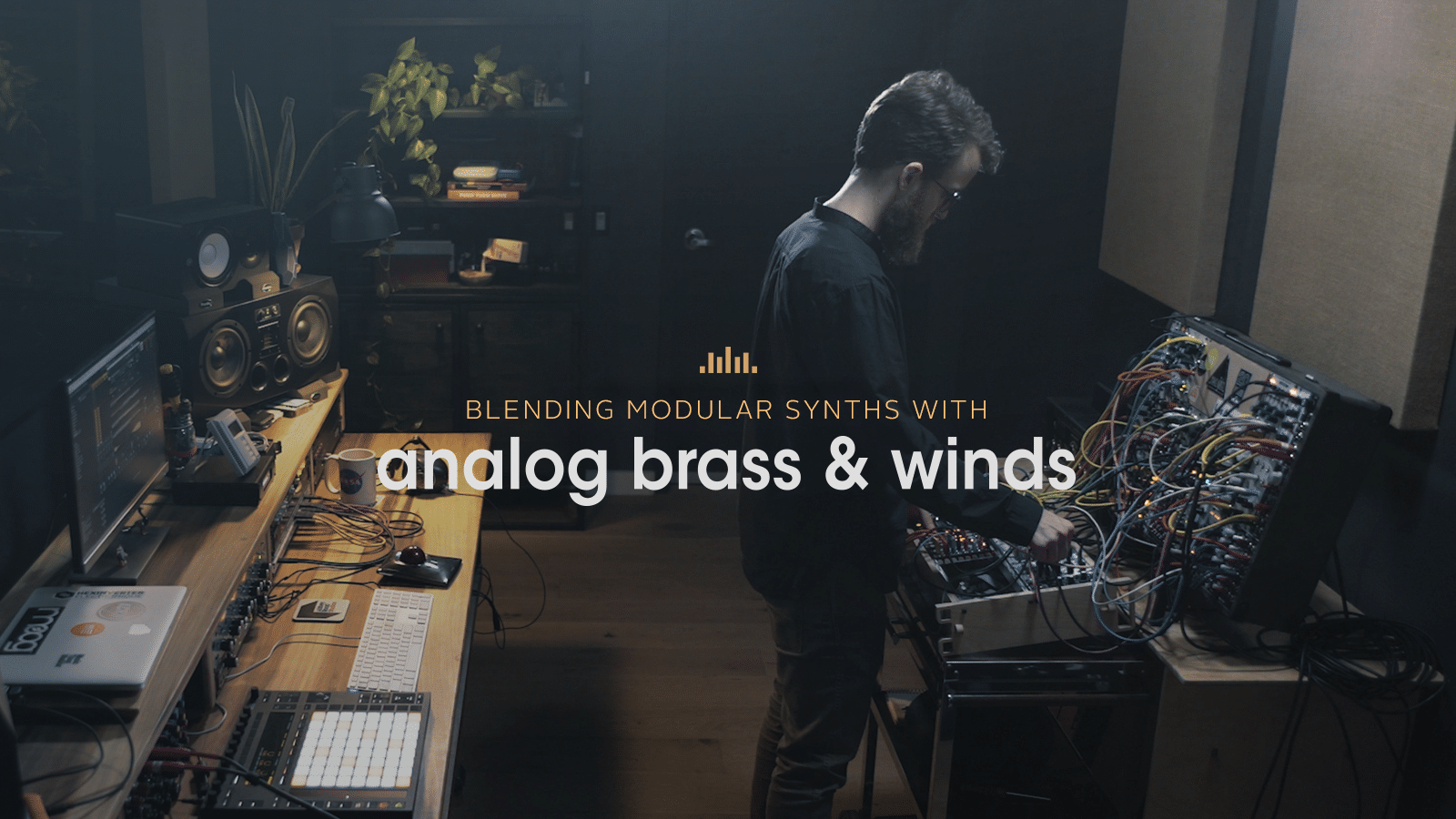The dance floor is a space for freedom, connection and celebration. Yet, when electronic music producers Maude Vôs and Marie Nyx looked around, they found that there was a need to elevate their diverse community—which lacks representation in the larger commercial industry. Together, they formed Delusional Records, an inclusive label and collective devoted to showcasing LGBTQIA+, female-identifying, nonbinary and BIPOC artists—amplifying their work, and aiming to inspire the next generation of artists to see that there is room for them on the decks.
Can you tell us about Delusional Records—its mission, origin and sound?
Maude Vôs: I found my community in dance music, because it’s the embodiment of all things that I adore in life—community, being unapologetic, late nights, art, fashion, media, just endless expression—and it has been commandeered in a capitalistic fashion. Working heavily in pro audio as well, I felt there were not a lot of humans like myself. Many of the labels that I released on in the past, I was the token person on the label or the compilation—or I was the only queer person anywhere in the whole catalog.
[Marie and I] have so many friends and people in our realm who make amazing music. We wanted to share that with the world and showcase these artists, and use the platform and knowledge that we’ve both grown in different spheres—Marie more in live shows, booking, events and communications, and me more on the technical aspects of things—to come together and create a community where artists can collaborate. It’s a great spiderweb that keeps growing with amazing community and forces—whether it be our engineers who do a lot of the mastering, our distro, our publicists, or our artists. It’s all very mindfully thought out and curated.
Since starting this label, what have you learned?
Maude Vôs: I feel like we jumped without a parachute. I took music business in school. I did a ton of ASCAP conventions, I have listened to numerous panels at different audio events. But at the end of the day when you’re actually doing it—constructing contracts, splits, sorting royalties, and making sure everyone’s taken care of from an A&R perspective…
Marie Nyx: …we jumped in and had to educate ourselves. Going into this, you learn how many different hats you have to wear. You’re not only representing your own catalog, you’re distributing the music, you are working with an artist for the assets, you’re working with engineers for mixing and mastering. There are a lot of moving parts that go into running a label, and it’s actually very rewarding to know that both of us are doing this thing that you’d see big teams doing.
As Delusional Records has grown, what are some of the larger goals that you’re working towards?
Maude Vôs: Over the last two years we’ve decided instead of releasing eight EPs a year that are two tracks and one giant compilation, what if we release five records a year, and they are bigger projects? What if we’re taking on more meaningful projects, bringing more community together, and everything is coming together for that bigger release synergy? I think we’ve found [that strategy] is a lot more rewarding. Now that we’ve really honed in on where the sweet spot is, a lot of people are starting to take notice.
Do you each have roles that you fill within running the label?
Marie Nyx: There’s a really good balance, but we do bring different skill sets to the table. I am really good at managing—whether it’s scheduling, answering emails, or artist A&R. That’s more of my role—the communication and putting things in motion. I went to school for communications. I did PR for a minute. I was an event coordinator. While Maude does a lot of that with me, they are great at the conceptualization of the art, the engineering, and the sound.
Maude Vôs: Creative direction is really fun for me. [Marie and I] really do conceptualize sound together, meaning we’re like, “Hey, we’re doing a Delusional showcase. Let’s have this person headline it,” but ultimately Marie will work with that person’s management to secure the booking. I am a tried-and-true neurodivergent introvert. I talk better to my synthesizers than I do to human people (usually) unless it’s something really niche. I formulaically lay out comps and put together things that I feel like sonically land. While I do have a recording technology degree, I delegate it all. I have numerous engineers that I have worked with over the years that I freaking love for different reasons, whether it’s commercial music or dance floor music. I have a trained ear and I’m like, okay, this master is hitting, or this mix is hitting. It takes something off my plate, but I oversee it, and I 100% micromanage it.
Many of the labels that I released on in the past, I was the token person on the label or the compilation—or I was the only queer person anywhere in the whole catalog.
Maude Vôs
Tell us about each of your journeys as musicians/artists/producers.
Marie Nyx: I started in music at a young age—guitar, piano, choir—but I never really stuck with anything. I just knew I wanted to be involved in the music industry in some way. Throughout college I did internships, and I found live music, festivals, and the electronic music culture—and I got really involved in the rave scene. I always felt like I had a home there. I was able to let my creative expression fly and felt accepted in any way I showed up.
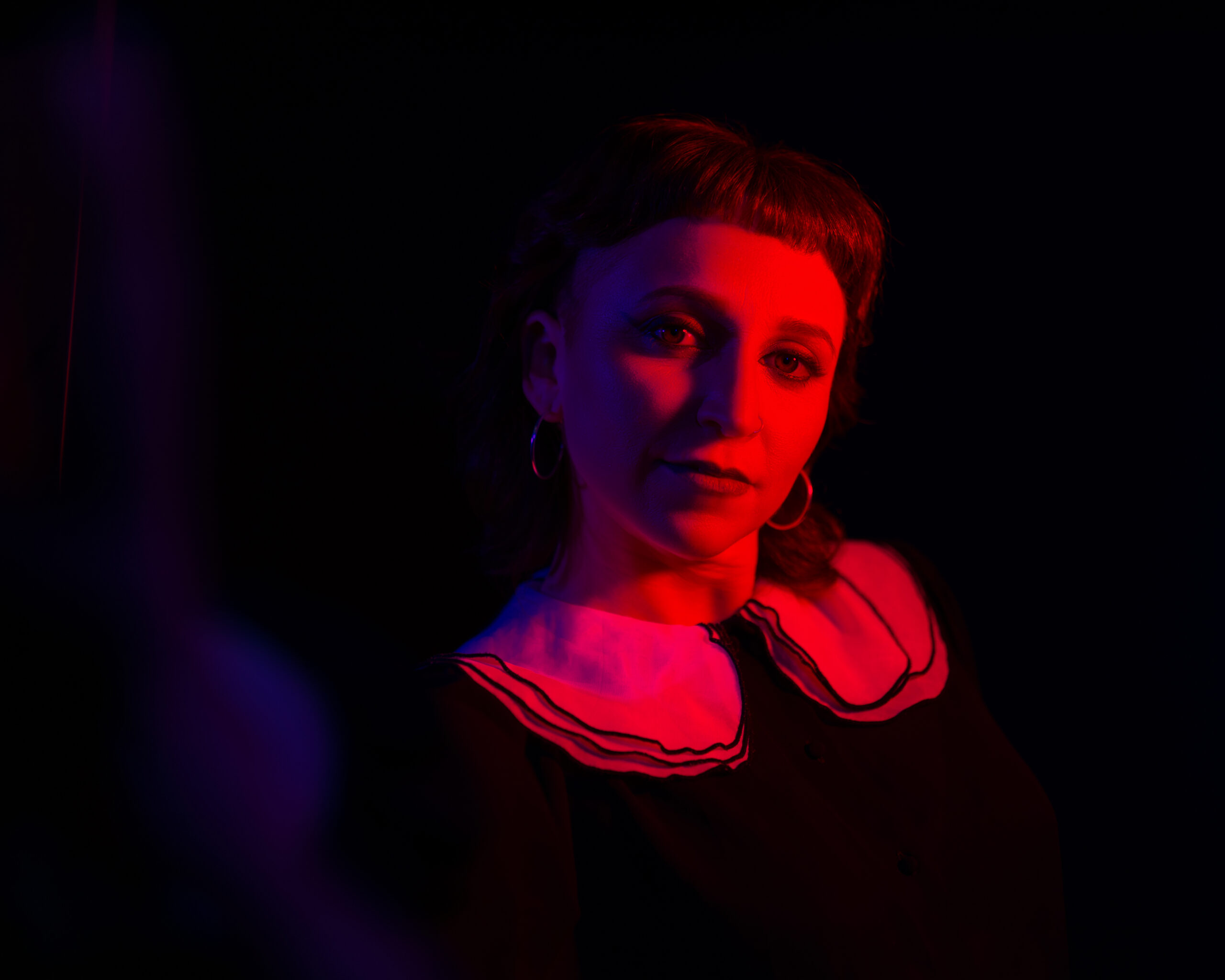
I started picking up DJing—getting out there playing and sharing my music. I started taking certain courses in production on IO Music Academy online, and then I was working with other producers just to collaborate and learn different techniques. I met Maude in 2020. I used to throw events, and Maude played one of my events. We connected from the beginning, and in 2021 we decided to start our label.
And, Maude, what’s your story?
Maude Vôs: I’ve done it, everything and all of it. I got into raves at the prime age of 15 years old, played trumpet in my school, and started DJing at 17. I started producing music with friends—had a couple different projects and toured a bit as well. I gave all of that a halt to go to school and get dual degrees in media music and recording technology, which really fed my soul in the cinematics. I love scores, horror movies, weird sci-fi, a lot of culty-type stuff—and so a lot of my music is really a bridge between cinematic orchestral music and the dance floor. I love working with vocalists, and have produced for galleries, fashion, vocalists, and whatnot.
[After completing school] I worked at a nonprofit called Spy Hop out of Utah. My grant was geared towards at-risk youth in juvenile detention and alternative high schools—and taking the Ableton Push Initiative and helping these kids work on healing and recovery in the form of beatmaking. I worked with a psychologist out of Oakland named Dr. Elliot Gann, and it still lives on.
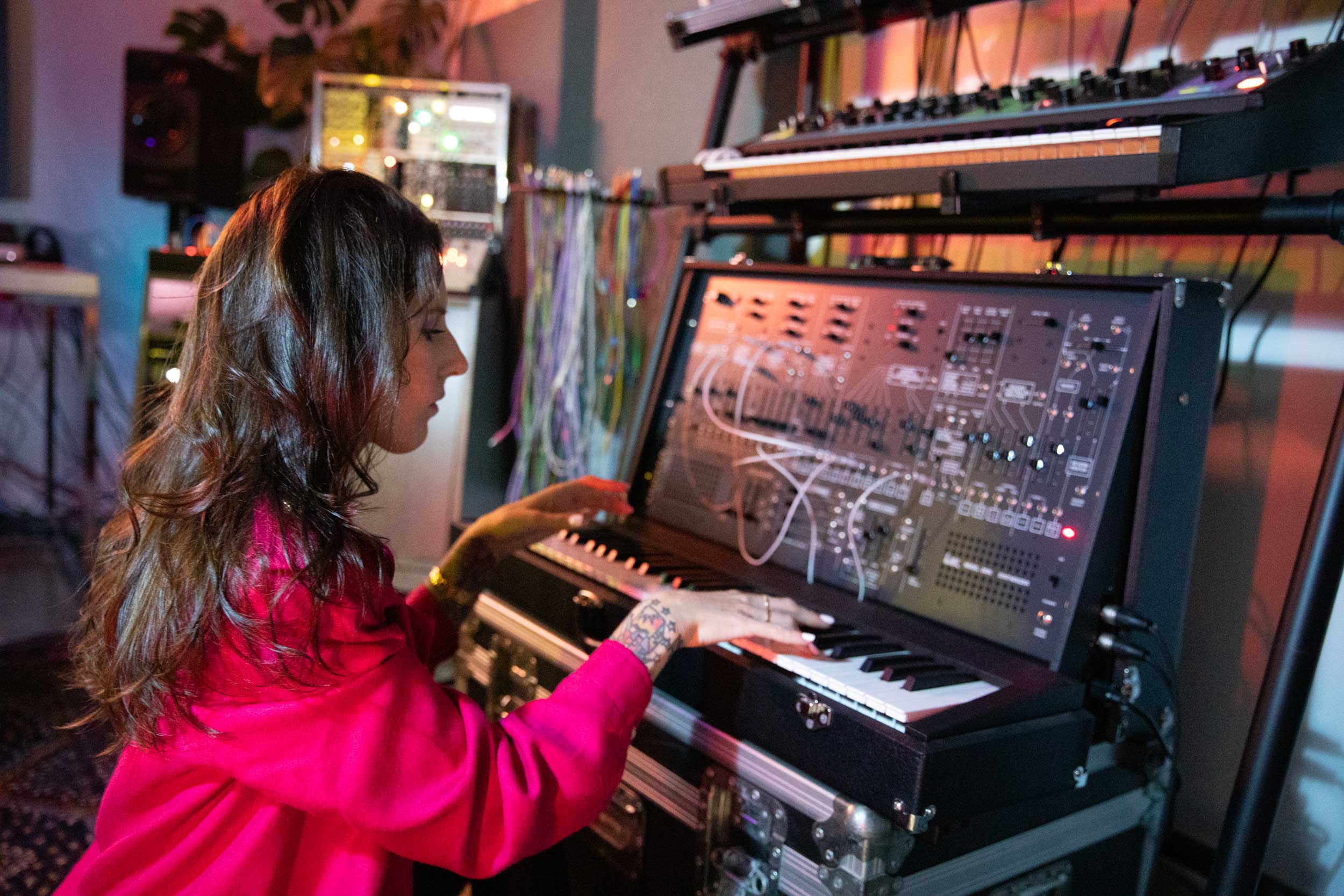
After that, I moved back to LA and got a job in the audio sphere where I was educating people like Skrillex’s engineer on synthesizers, building studios for people like Meghan Trainor, and just a lot of integration of wiring, cabling, studio optimization, system configurations, all sorts of stuff like that. I fell in love with Surround and Atmos, which leads me to where I am now—really delving into writing a lot of my own music, running the label, and wanting to bring immersive audio to the people. I just finished a Surround install in my room.
Do you have thoughts on why music is such a powerful medium for building community and driving change?
Marie Nyx: Music is a universal language, and you don’t have to connect through words. You connect through sound. I have always found music one of the number one ways that I connect with people personally, and that’s always been how I’m able to actually express my feelings and my emotions. Being able to move other people in that way or influence someone positively through sound, I think is one of the most powerful things you can do.
Maude Vôs: From the science and psych perspective—music therapy, sound baths—the science is there for the healing aspect. I know it’s literally saved my life so many times between the dark spaces I’ve been in and out of throughout my life. But I think for a lot of folks finding something that is in this STEAM/STEM realm—where it’s like, I don’t fit into a literature background. I don’t fit perfectly into software, technology, or engineering. We get this meld because we’re tapping these different parts of our brains. I think of music a little bit as literature when I am songwriting. It is a little bit of math when I’m writing chords and needing to move my intervals around. It’s a little bit sonic science when I’m trying to squash everything down the pipe into my mix to make it sit. I’m utilizing a lot of different things, and I don’t have to fit into some mold or some box. I get to create this profession for myself that works for me.
You’ve certainly evangelized this perspective through the work you do—Delusional Records as well as some of your past projects.
Maude Vôs: I do a lot of workshops. We’re going to do one with this collective called Deck Yes. I just went over to the ICON Collective and did a sound design workshop. There are so many different artistic expressions in our sonic field, whether it’s field recording and telling a story with that, or composing for games. I think the industry does have a lot of work to do in regards to the misogynistic sphere around the STEM industries—specifically in music technology—because there still are only 2% of queer, non-binary, femme folks running labels. There are only 5% of women, femme, non-binary people producing and engineering music. We have a lot of work to do, and I think a lot of it comes from being visible and using our resources and our boots on the ground to get shit done.
In terms of supporting LGBTQ+ artists and music, what progress have you witnessed over your careers, and what are some of the most urgent challenges to overcome?
Maude Vôs: I’m going to talk about it in the large sphere—the large sphere that is capitalism.
I think there are many organizations of queer folks doing amazing work—everything from FeM Synth Lab to Coaxial to different little collectives—Frequency Shift, and there’s SoundGirls.
Ultimately queer people, femme folks, disadvantaged folks, and people of color do not have the same resources. It took me so much longer and more of my personal resources to put myself through school than it would ever take a cis white man. At the end of the day we need resources to get young women from point A to audio school. We need mentorships for these folks to be sitting in studios in safe spaces where we are not talked down to, where we are not sexually harassed, where we are not in rooms where they are saying, “Hi, good morning, gentlemen.” Half the time, when working in pro audio, it was not fun for me. It was a means to get where I needed to be in my life and learn what I needed to learn. And still to this day, I’ve had tons of triggering experiences. But, I have had many experiences juxtaposed that have been beautiful and honoring. And that’s why I’m still here, because I want to facilitate those opportunities, and I want to show people that you can build your own studio if you are not a cis white man. You can create records. You can engineer records. There are people out here doing the work—Kiran Gandhi, Ebonie Smith, Piper Payne. It’s hard, and it’s not for the faint of heart. I want to change it so badly, and that’s why I’m still here. At the end of the day, the simple answer is money. It’s people in power who run this industry giving back and creating initiatives and grants in this sphere. That will change it. And that’s the only way, I believe.
Marie Nyx: It’s outreach to these communities to include them in upcoming releases, not just to have the token queer person on the lineup, but to showcase this artist.
Can you tell us about some Delusional artists and projects we should know about?
Marie Nyx: I think one of our residents, Trovarsi, is definitely someone that people should know about. She is an amazing live hardware artist. She does modular synths and runs the SoCal Synth Society. She’s been with us from the beginning, and she has a release with us in August. This will be her third.
Maude Vôs: She’s helping queer and femme folks reach hardware, because it’s not always accessible. We did outreach with her earlier this year for Make Music Day. We bring synths to kids, do tons of tables and demos of different pieces of gear, but she orchestrates the whole thing. So she’s really kind of like us—does a million things. We’re her biggest fans, basically.
Any other recent Delusional releases by either of you?
Maude Vôs: I released a record earlier this year. It really showcases my work with vocalists, and some remixers. It’s a fully queer release with all the folks on it. Marie and I just did a single with six remixes for Pride. In August we are doing our second anniversary compilation. It’s where we bring some of our residents and people who have released with us before to do a single on the compilation—as well as a lot of new faces that we get to showcase. We spend a lot of time working on this, because we really handpick each of these artists specifically.
As music creators, can you share some of your favorite tools or techniques?
Marie Nyx: I am a little bit newer to production, but I feel like I’ve recently found the pieces of gear I like and the sound that I am trying to achieve. I have started using the Erica Synths LXR, the Volca NuBass and the Volca Keys. What I’ve been doing lately is just creating all the sounds for my tracks on those pieces of gear and then recording it in. Same with the Roland D-50. It’s my grandpa’s synth from the ’80s and I just wrote my first song with it about a week-and-a-half ago. I use Ableton. I create a lot of my bass sounds in Max for Live. I feel like it takes a while to find your groove and to create your toolbox, and Maude has helped me tremendously in building my skill.
Maude Vôs: I did six pages for the Korg Patch & Tweak book with a lot of patches on the ARP and the Volca Modular. I get really hyped on keeping it fresh and interesting—and kind of trying to break things.
The Sidecar is literally the most used piece in my studio, because it houses the whole optimization and brain of my studio. My patchbay lives there, my Apollo lives there, sometimes I put the Push there. And then my Eurorack is right on the top. I’m at that dang Sidecar more than I am at the computer. I just like to be able to just run everything into anything and then back around—like the ARP 2600 into my Eurorack, into my Moog Matriarch. All of these are the staples for my sound design. I have these really aggressive sessions where I’m just sound designing. I’m not doing arrangement, production or writing accompaniment—I am just getting it out. Then I’m going back and I’m creating sample banks of my own sonic takes, and that’s what I’m utilizing. I’m like, okay, that piece has legs. Let’s write accompaniment to it, or let’s get a vocalist. That’s how the track that we just released ”In the Club Out” started.
For effects, [I use the] Kaossilator, Microcosm and I have an RE-301 old school tape echo. I have a Jasper stand for a lot of my keyboard stuff and my effects. And then software-wise, for recording in, I use the UAD stuff. I find it’s just tried and true for everything from synths to vocals. I like the old vintage Arturia bundle, because I’m never going to own a CS-80, unfortunately! I have a lot of software, and I utilize a hybrid mentality when I am composing, because there are things I can’t get out of software that I can get out of my hardware and vice versa. It’s important to me to use all the tools at my disposal, because I didn’t grow up producing in the ’80s on tape. I grew up producing 15 years ago when I did have a DAW, and it’s always been Ableton. Ableton for me, production-wise and creativity-wise is what lands.
How do you find inspiration for your work?
Marie Nyx: Many things—life experiences, things that happen, emotions. Collaboration is a huge way I find inspiration. Watching live music—I always come home, and I’m like, yeah, I need to come write a track now. There’s so many things that inspire me that it’s hard to just narrow it down—and when I am feeling inspired, I need to just get on there and start my process.
Maude Vôs: For me, it’s this synergy and connectivity to my innermost soul, as well the whole vast array of nature and our planet. There’s nothing in this world to reset my creative force like a hike or sitting out at my pool watching the butterflies. It just really levels me to a point where the alignment of the flow state just lands. I love a project, a story, a journey. I love film, fashion, reading—so a lot of those things come together for me in my art.
What advice do you have for folks interested in starting their own record label or collective?
Marie Nyx: As long as you have your vision and passion, just go for it.
Maude Vôs: And just take care of yourself. It’s really easy to burn out in this industry, so you’ve got to take time for you, so you can do the things you need to do. But I think it’s just a learn as you go thing. I think it’s always going to be that. It’s like if you want to produce music, cool, start.
Keep up with Maude Vôs and Marie Nyx.
Follow Delusional Records.
